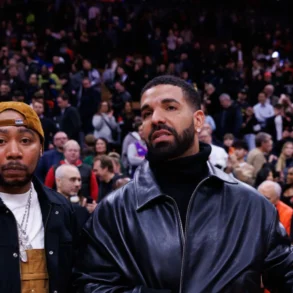DJ Clark Kent, the proud Brooklynite who was known for his party rocking acumen, contributions to the careers of borough mates like Jay-Z, and massive sneaker collection, died on Thursday. He was 58. He was superlative in his monikers; aside from the Superman byname, Clark was known as “God’s favorite DJ.”
Clark’s death was announced via his Instagram account on Friday. Per a statement on the account, he had privately battled colon cancer for three years.
“Clark passed away Thursday evening surrounded by his devoted wife Kesha, daughter Kabriah, and son Antonio,” the post reads.
DJ Clark Kent was born Rodolfo Franklin on Sept. 28, 1966. Hip-hop culture arrived in the next decade and became a driving force in his life, passions, and work.
Clark was a DJ for the rapper Dana Dane in the 1980s, traveling with him on tour. As a DJ, he also played at clubs in New York, bringing Brooklyn hip-hop to Manhattan before the genre was mainstream.
Clark was a pivotal figure in Jay-Z’s career, having introduced him to his Roc-A-Fella Records partner Dame Dash in the early ‘90s. Clark was a cousin to the rapper Foxy Brown, whom he introduced to Jay. More than just a DJ, he produced beats for Junior M.A.F.I.A. and connected Jay to the Notorious B.I.G., orchestrating and producing their first collaboration, “Brooklyn’s Finest.”
Clark was a sneaker obsessive who was peerless in his love for footwear as soon as the hobby of sneaker collecting emerged from hip-hop culture in New York in the ‘80s. Before hoarding hundreds of shoes was considered cool, Clark was amassing a collection.
He hunted for sneakers across the globe and encouraged others to do so. Clark frequently gave away shoes on social media. He would leave a pair somewhere, post a photo of the drop spot, and add a hint as to where followers might find them.
Clark parlayed his love for sneakers—particularly the Nike Air Force 1, a model he advocated for as the best sneaker ever—into relationships with footwear companies. He consulted for brands like Adidas and Nike, who celebrated Clark with sneaker collaborations.
His most popular project was his “112” line of Nikes, so named in reference to the first three digits of the zip codes in his beloved borough. Clark helped design the rare Scarr’s Pizza edition of the Air Force 1, and last year made his own friends-and-family Air Force 1, dubbed “The List.”
Nike issued a statement in the wake of Clark’s death.
“We are deeply saddened by the passing of our dear friend and true cultural icon, DJ Clark Kent. At Nike, we were honored to collaborate with Clark on projects that celebrated not only his deep love for sneakers but also his unwavering dedication to pushing creative boundaries and elevating culture,” the statement reads. “His impact on the world of sneakers is beyond measure, with an influence that spans the globe and generations. Clark’s legacy will forever inspire future talent, leaving a lasting mark on our industry. Our hearts go out to Clark’s family, friends, and all those touched by his extraordinary talent, passion, and kindness. His presence will be greatly missed.”
Clark was a font of anecdotes and opinions, a living record of the history of New York rap music and sneaker habits. He shared these with Complex on many occasions. Clark would visit the Complex office and hold court about the Reasonable Doubt recording sessions, or pop up on panels at ComplexCon to argue for his favorite shoes in annual sneaker of the year discussions. From 2013 to 2016, he was a co-host of Complex’s pioneering sneaker talk show Quickstrike, with Complex editor Russ Bengtson.
Clark was a public champion for his family. One couldn’t scroll too far through his social media feeds without seeing a post celebrating them: an adoring Mother’s Day tribute for his wife, a message of love for his children.
His passing is a loss for hip-hop music and sneaker culture, although he rejected the latter term. Clark preferred “sneaker community,” a phrase that more accurately conveyed his experience of fellowship through footwear. He was a large figure in the community, but never wanted to be an elitist.
“If anybody sees me in the street and they stop and talk, or they stop and say hello,” Clark told Complex in 2019, “I will have a sneaker conversation.”
This post was originally published on this site be sure to check out more of their content.






